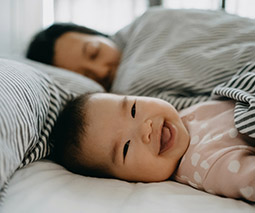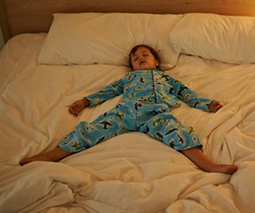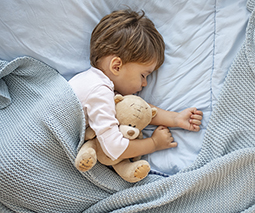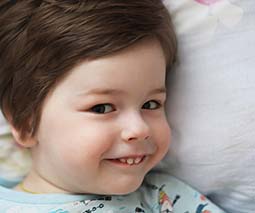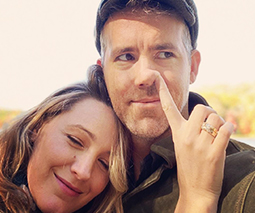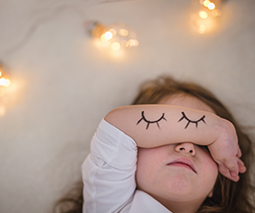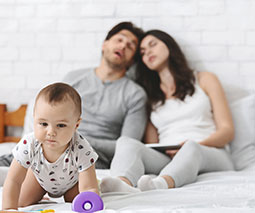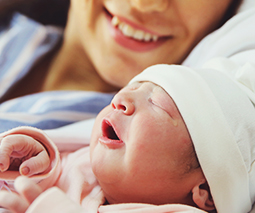Six things every parent needs to know about dealing with night terrors
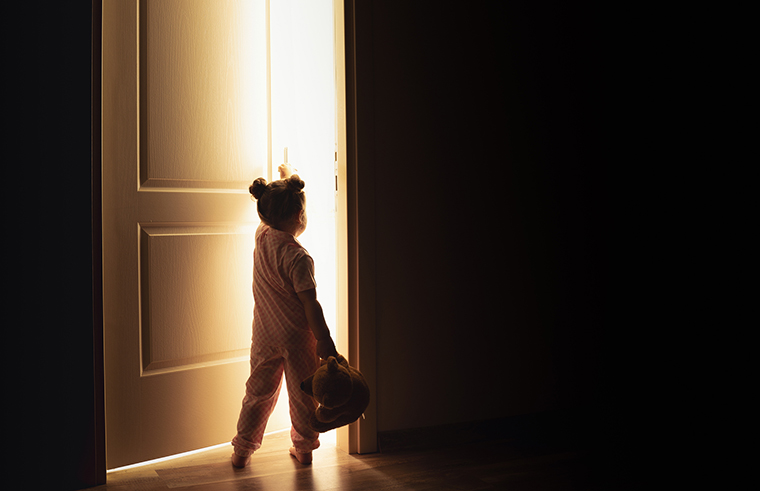
Sadly around five percent of kids will experience the horror of night terrors and it’s very often tiny preschoolers or primary-aged children who suffer the most. If you’re not sure what constitutes a night terror or the best way to handle them, we’ve got you covered. Here’s how to recognise and deal with these scary (for kids AND parents) episodes.
1. What are night terrors?
Night terrors are upsetting and dramatic awakenings, usually during the first two to three hours of sleep. Night terrors generally occur between the ages of 4 and 12, but have been seen in children as young as 18 months of age.
Night terrors are quite different to nightmares in a variety of ways. Night terrors happen in the first part of the night and are extremely traumatic for the child experiencing them. A child experiencing a night terror will not awaken fully and will usually be inconsolable. A child who has had a nightmare (usually in the later part of the evening) will wake fully after the bad dream and be fairly easily comforted by their parent.
A night terror is in fact not a dream at all, but rather a frightened reaction that happens when a child transitions from the deepest state of non-REM sleep to light REM sleep.
This usually happens seamlessly, but in five percent of kids, it’s a bumpy ride and triggers a fear response, also known as a night terror.
2. What happens to a child when they are having a night terror?
A child experiencing night terrors will begin talking or screaming in a kind of half-sleep. They will be very frightened and may be unable to awaken fully.
Children often appear to be in a distressed, dream-like state when these terrors take hold. Their heart-rate increases, eyes may appear glassy and they are usually impossible to console. Some kids in the throes of these awful episodes thrash about in their bed or run around, as if being chased.
“A child who is having a night terror is stuck halfway between being asleep and awake,” Melbourne’s Royal Children’s Hospital experts say.
“They are awake enough to get out of bed, talk or scream and have their eyes open; but they are asleep in that they do not respond to a parent trying to console them. They usually do not remember the episode in the morning.”
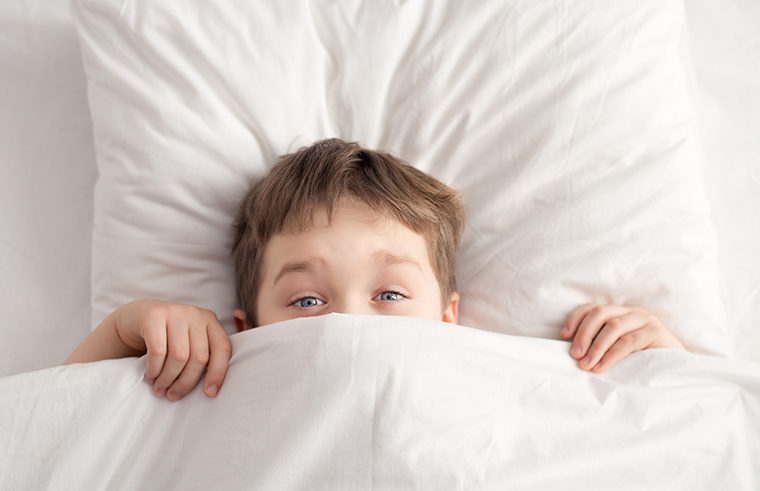
3. What causes night terrors?
Night terrors happen when a child’s central nervous system is over-aroused during sleep.
Kids experiencing night terrors may have other sleep walkers or night terror sufferers in their family, so genes often come into play.
Night terrors are not usually associated with any kind of serious psychological or trauma. They’re a natural part of childhood development. Terrors can, however, be triggered by anxiety or childhood worries.
Children who are unwell are thought to have a heightened susceptibility to night terrors and kids who are on new medications or overtired may also be at greater risk. It’s also thought that boys are more prone to terrors than girls.
4. How can I keep my child safe during night terrors?
If your child suffers from night terrors (or indeed, sleepwalking episodes) there are a few simple measure you can put in place to keep them safer.
- Remain calm and try not to touch your child when they are in the midst of a night terror – this can make the episode worse.
- Tidy bedroom floors and hallways of any clutter before going to bed.
- Ensure that windows and doors are securely locked.
- If your child is staying away from home – another known trigger for night terrors – be sure that those caring for her are informed about prevention and response to night terrors as well. Sharing a link to this article would be a great way to do that.
- Consider putting a baby monitor in their room, if it helps you to sleep easier.
5. Can night terrors be prevented?
It’s not always possible to avoid the episodes, but reducing stress and making sure your child is not overtired are great places to start. Keep your child to a clear bedtime routine to prevent them from becoming overtired. Make time to discuss your day over dinner and deal with any kid worries reassuringly
Remember, night terrors are normal and happen in happy, healthy children. As scary as they are, your child is asleep when they are having a night terror and will usually not remember the episode when they wake up.
6. When should I seek further help for night terrors?
The Royal Children’s Hospital suggests seeing a doctor for further advice and possible treatment if:
- Your child’s night terrors are violent and they are at risk of injuring themselves or someone else.
- The episodes are very frequent and disturbing everyone’s sleep.
- Your child is unable to function properly due to these night time episodes.
If your family is struggling with night terrors, remember you are not alone and there’s help at hand if things are becoming unmanageable or if you need some reassurance.
 Need some more baby or toddler sleep advice? Our Parent School sleep experts can help. Click to find out more or book a one-on-one session.
Need some more baby or toddler sleep advice? Our Parent School sleep experts can help. Click to find out more or book a one-on-one session.
